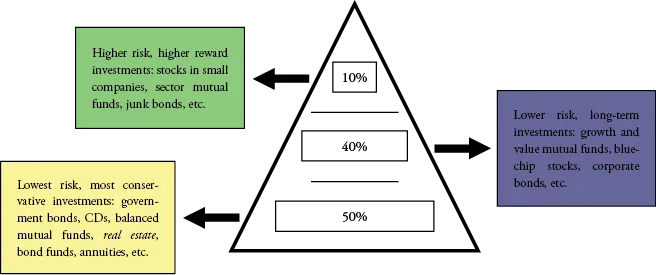
eBook - ePub
Building Wealth
An Insider's Guide to Real Estate Investing
Charles Hibble
This is a test
Partager le livre
- 82 pages
- English
- ePUB (adapté aux mobiles)
- Disponible sur iOS et Android
eBook - ePub
Building Wealth
An Insider's Guide to Real Estate Investing
Charles Hibble
Détails du livre
Aperçu du livre
Table des matières
Citations
Foire aux questions
Comment puis-je résilier mon abonnement ?
Il vous suffit de vous rendre dans la section compte dans paramètres et de cliquer sur « Résilier l’abonnement ». C’est aussi simple que cela ! Une fois que vous aurez résilié votre abonnement, il restera actif pour le reste de la période pour laquelle vous avez payé. Découvrez-en plus ici.
Puis-je / comment puis-je télécharger des livres ?
Pour le moment, tous nos livres en format ePub adaptés aux mobiles peuvent être téléchargés via l’application. La plupart de nos PDF sont également disponibles en téléchargement et les autres seront téléchargeables très prochainement. Découvrez-en plus ici.
Quelle est la différence entre les formules tarifaires ?
Les deux abonnements vous donnent un accès complet à la bibliothèque et à toutes les fonctionnalités de Perlego. Les seules différences sont les tarifs ainsi que la période d’abonnement : avec l’abonnement annuel, vous économiserez environ 30 % par rapport à 12 mois d’abonnement mensuel.
Qu’est-ce que Perlego ?
Nous sommes un service d’abonnement à des ouvrages universitaires en ligne, où vous pouvez accéder à toute une bibliothèque pour un prix inférieur à celui d’un seul livre par mois. Avec plus d’un million de livres sur plus de 1 000 sujets, nous avons ce qu’il vous faut ! Découvrez-en plus ici.
Prenez-vous en charge la synthèse vocale ?
Recherchez le symbole Écouter sur votre prochain livre pour voir si vous pouvez l’écouter. L’outil Écouter lit le texte à haute voix pour vous, en surlignant le passage qui est en cours de lecture. Vous pouvez le mettre sur pause, l’accélérer ou le ralentir. Découvrez-en plus ici.
Est-ce que Building Wealth est un PDF/ePUB en ligne ?
Oui, vous pouvez accéder à Building Wealth par Charles Hibble en format PDF et/ou ePUB ainsi qu’à d’autres livres populaires dans Business et Real Estate. Nous disposons de plus d’un million d’ouvrages à découvrir dans notre catalogue.
Informations
Sujet
BusinessSous-sujet
Real EstateChapter 1
Designing Your Own Real Estate Investment Strategy
Now it’s time to develop a real estate investment strategy that fits your investment goals, your investment style, your current financial situation, and even your special skills, talents, and interests.
First, when developing a workable strategy, ask yourself the following questions:
- Does your current schedule provide time to build sweat equity or manage a property?
- Do you want to be a landlord?
- Does property ownership fit your lifestyle, i.e., do you travel a lot, etc.?
- Does property ownership fit into your overall investment strategy?
- Does property ownership reflect your investment style?
- Other than cash, what skills, talents, and/or interests do you bring to the table?
By answering these six questions, you’ll develop a better feel for how real estate investments can best fit into your life and know which investments are suited for your investment style, lifestyle, and personal traits and characteristics.
Next, think about your current investments and your approach to investing in general. Let’s take a quick look at some investment fundamentals to keep in mind when designing your personal real estate investment strategy.
Diversification
Diversification is nothing more than “Don’t put all your eggs in one basket.” (Mom was right!) Diversification is an important consideration in the development of any collection of assets—stocks, bonds, mutual funds, CDs, and gold coins—how you divvy up your assets (your investment portfolio) counts when it comes to making money.
Many financial gurus use the pyramid model to describe how a diversified asset portfolio might look.

A conservatively diversified investment portfolio
If you have a greater risk tolerance or a twenty- to thirty-year time horizon before you intend to dip into your savings, you might want to juice up the top and middle layers of the pyramid to generate more reward at some increased risk.
Look at your assets—your IRA, 401(k), stock, and bond holdings—all paper assets. A small investment in real estate diversifies you out of paper and into something tangible—real estate. It’s a different kind of investment in a completely different market (from stocks and bonds), and plain and simple, real estate adds real diversification to virtually any collection of paper assets.
Preservation of capital
Straight up? Hold on to what you got. The last thing you want to do is worry about your nest egg losing value. Real estate is a terrific investment for investors concerned about keeping what they have and those with short investment time horizons.
Real estate investments help preserve capital in several ways:
- Property holds its value better, even when the stock and bond markets are tanking.
- Property usually increases in value at a faster rate than paper assets.
- Property offers flexibility to you, the private investor, by providing a number of investment strategies for changing financial times and your personal circumstances, i.e., rental property for monthly income to buying houses to fix up and sell quickly.
Property ownership is not only one of the best tools for growing wealth but also one of the best tools for preserving what you’ve already got.
Leveraging
Leveraging is simply using other people’s money to make money for yourself. Your home is a perfect example. You put down a small amount of money on your home and borrowed the rest from a mortgage lender. Now, ten years later, your home is worth twice what you paid for it. So who keeps all of that increase in property value? You, the smart investor.
Let’s say you put down $10,000 on your home when you bought it for $120,000 ten years ago. Today, the house is appraised at $200,000. In fact, you made a profit of $80,000 on a $10,000 outlay. You put up $10,000 and walk away with $80,000 when you sell. That’s the power of leveraging—one of the most appealing aspects of real estate investing.
Increased control of your investments
Buy $5,000 of IBM, and you’re at the mercy of IBM’s management to make the right business decisions and to operate ethically and legally. (Remember Tyco, WorldCom, Enron, etc.) You have no control over your investment dollars.
Invest that same $5,000 in a fixer-upper—fix it up and sell it for a tidy little profit. It’s your investment, your money, and you’re in control.

Where’s your money now?
Before entering the investment real estate market, it’s always a good idea to figure out where you are at the moment—what financial experts call a portfolio analysis, which is just a fancy way of asking, “How much money do you have, and where is it?”
If you’ve got money in anything from a passbook savings account to mutual funds, to stocks and bonds, to cash stuffed in a coffee can, guess what? You have an asset portfolio. So step one in becoming a real estate investor is to analyze your current financial situation.
A fresh coat of paint, a bit of landscaping and a good cleaning can lead to big profits.
Pay particular attention to the following:
- How much cash you have available. This is called your liquidity. Money stashed in an IRA, 401(k), some annuities, and other investments isn’t liquid, that is, you can’t get at it without paying some really stiff penalties. So focus on things like stocks and bonds (outside of your IRA), CDs and other cash instruments, money market accounts, passbook savings, and the cash buried in the backyard—money you can inve...